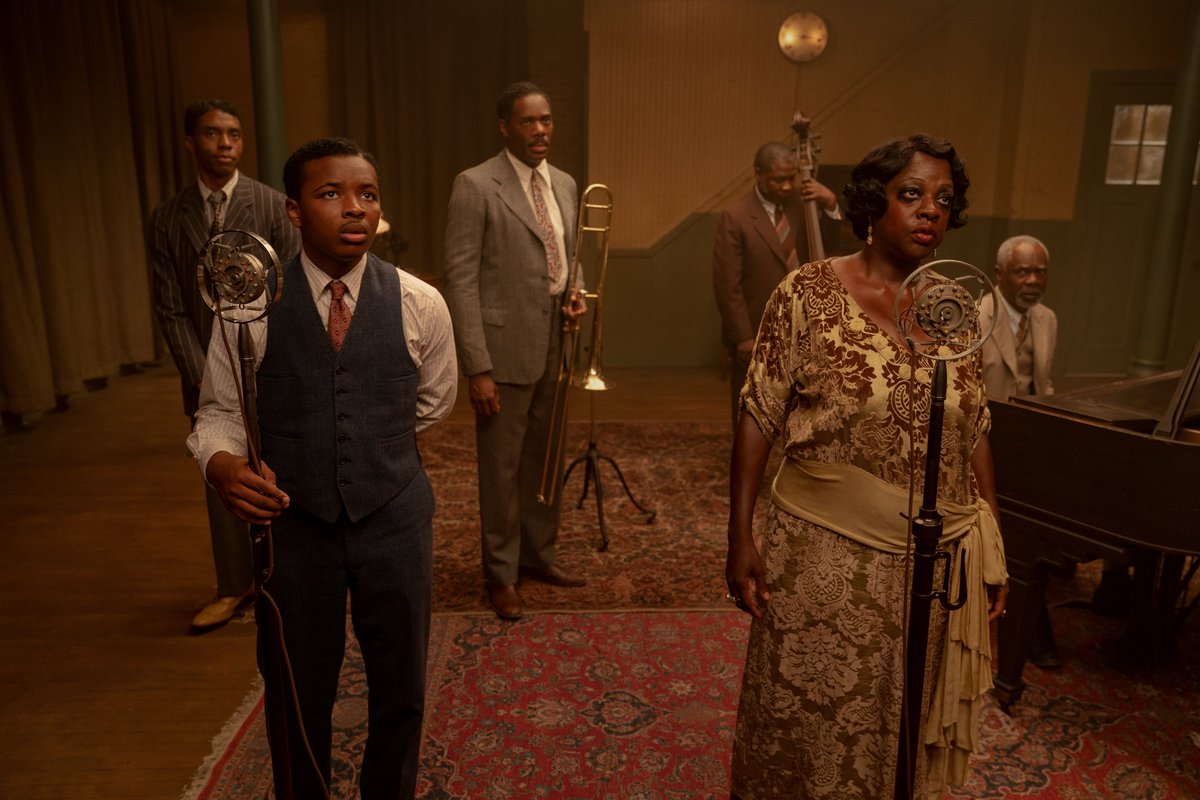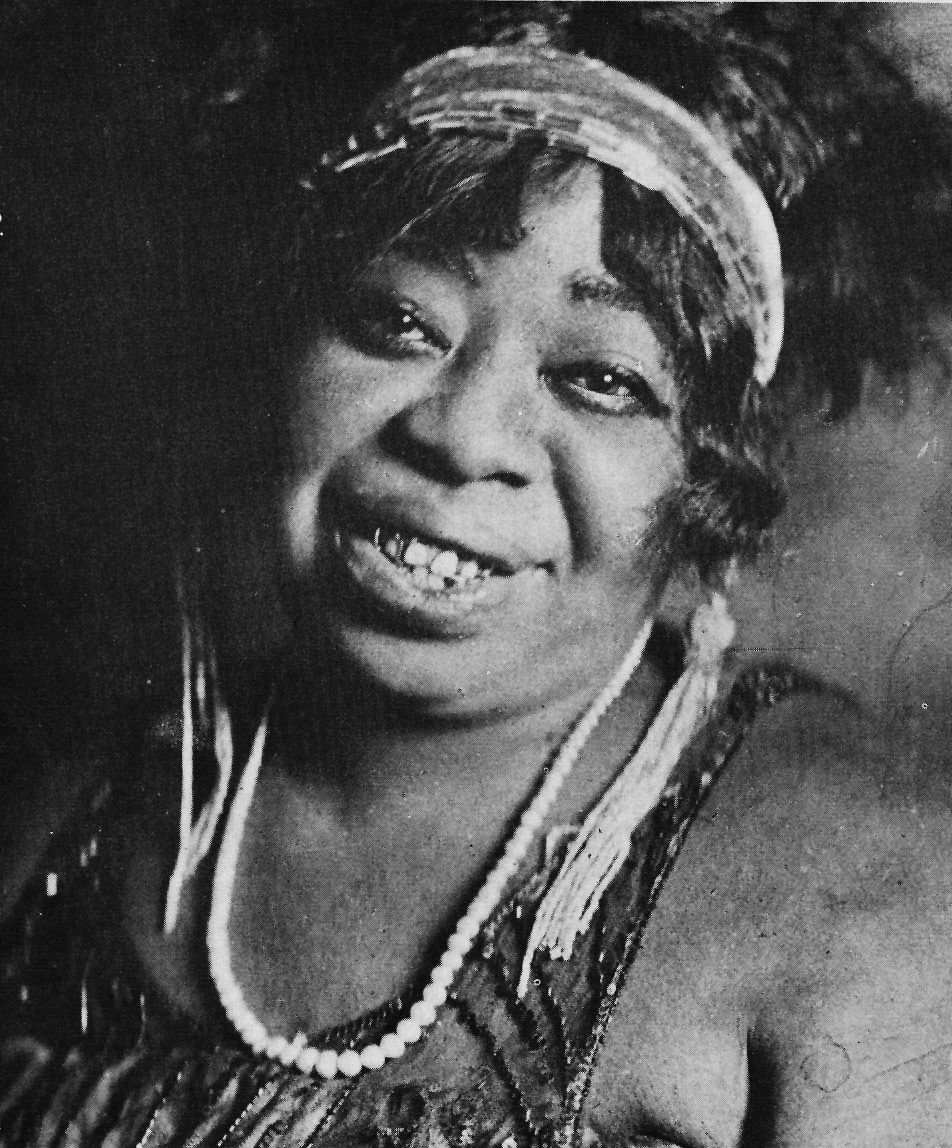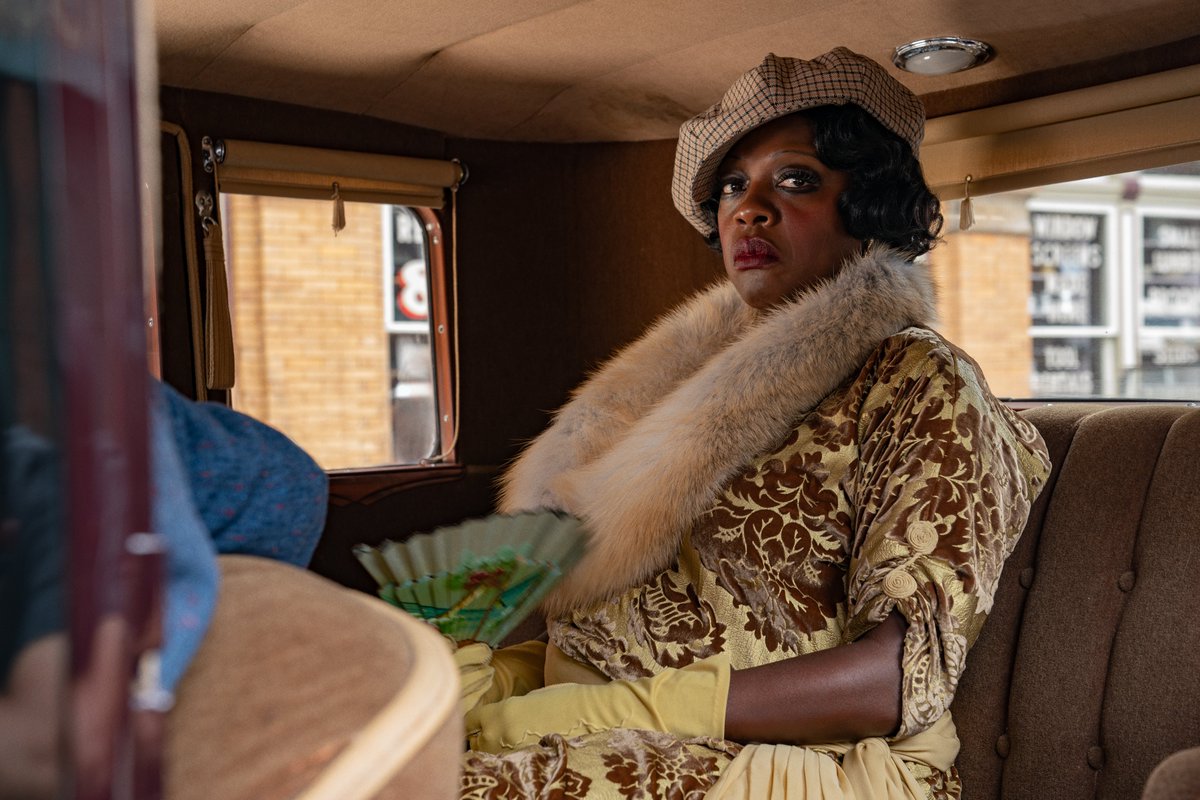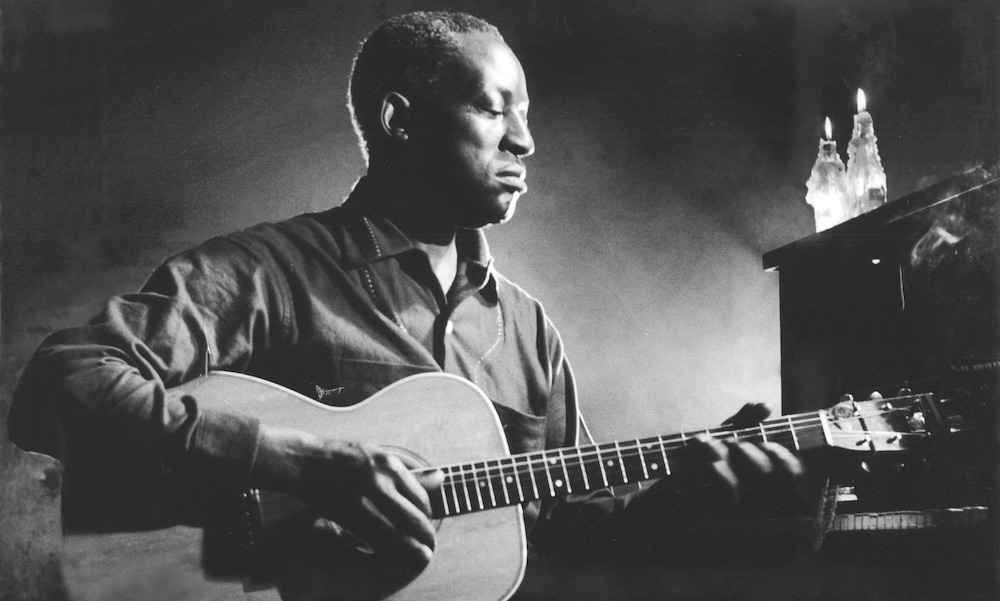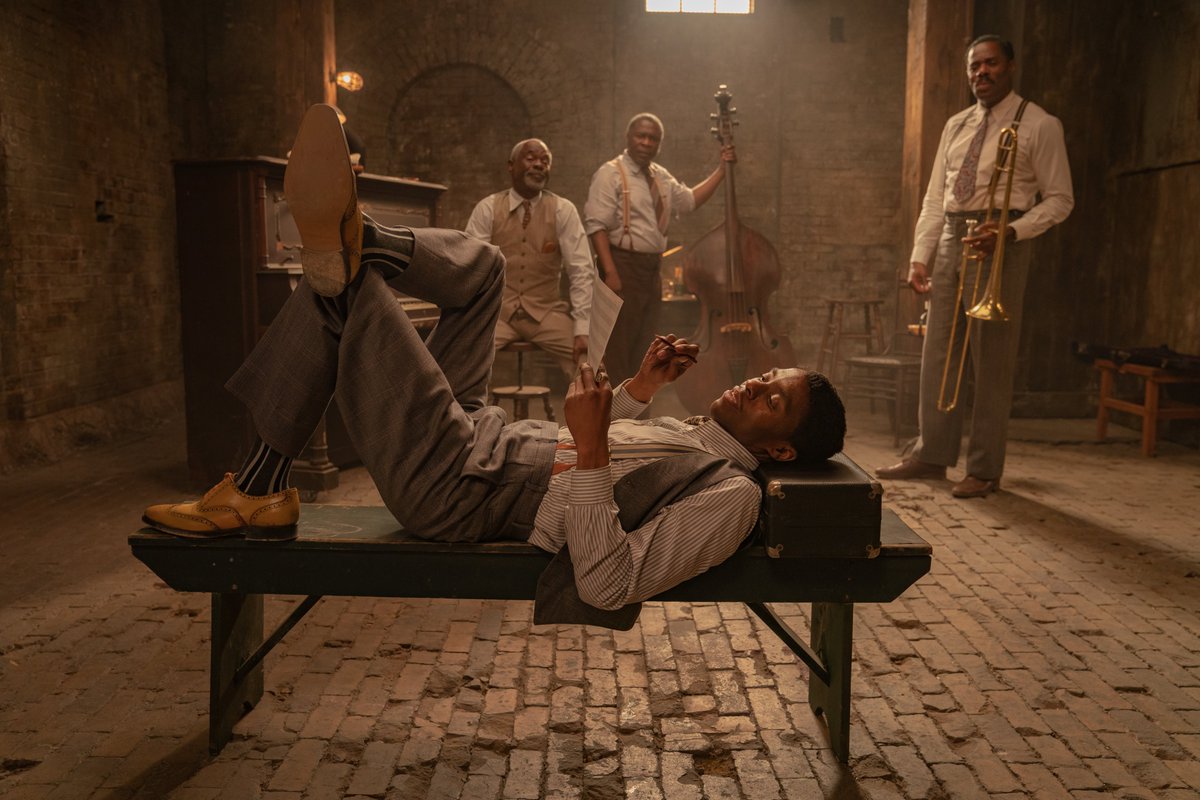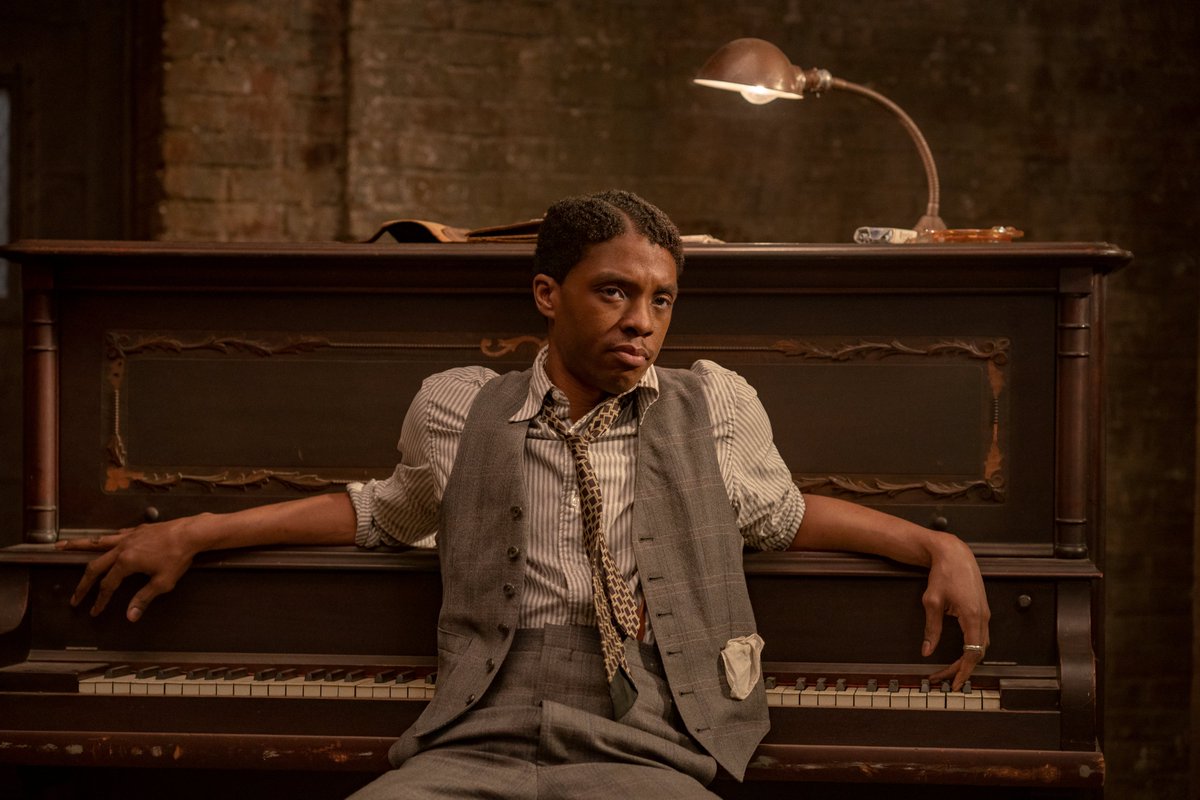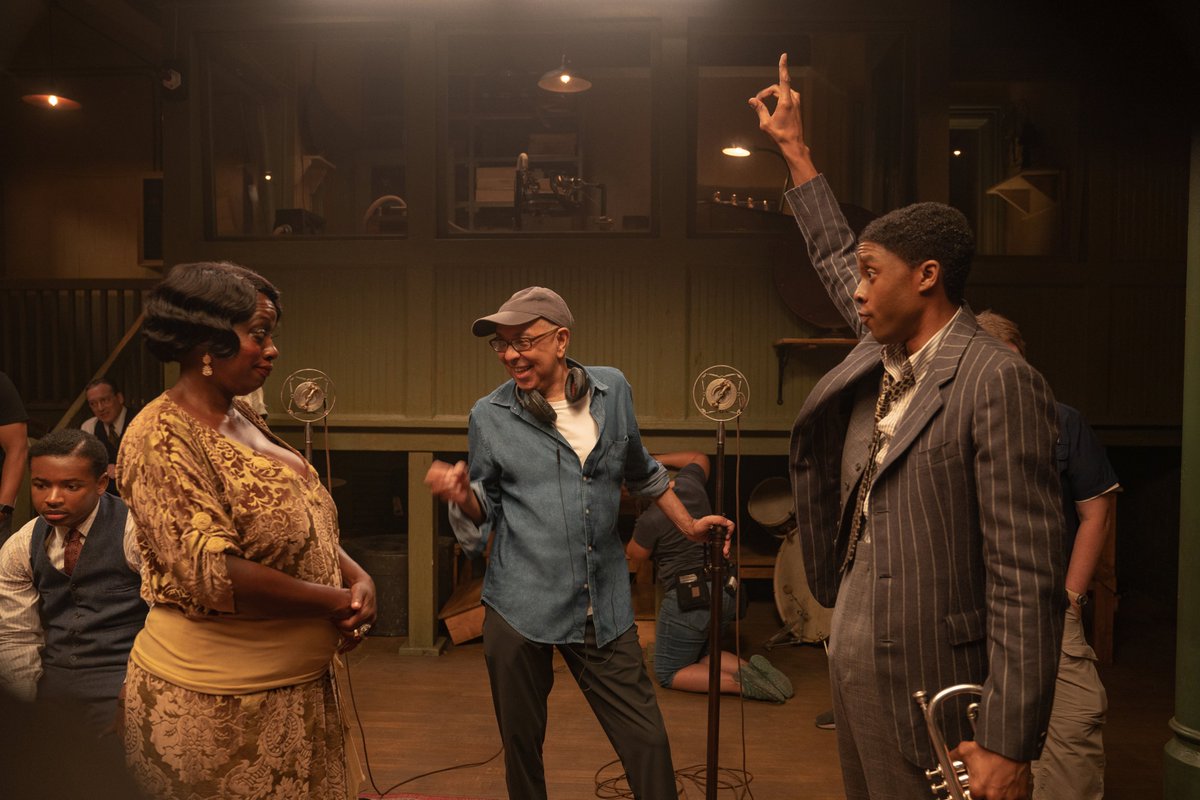Hello, I'm film critic Robert Daniels ( @812filmreviews), and I’ll be explaining how George C. Wolfe’s lively adaptation of August Wilson’s MA RAINEY’S BLACK BOTTOM conveys the threats Black artists like Ma (Viola Davis) and Levee (Chadwick Boseman) faced in white spaces. Thread!
Set in the 1920s, MA RAINEY’S BLACK BOTTOM is the third play in Wilson’s American Century Cycle—10 works telling the story of Black America in each decade of the twentieth century. Wilson based Ma on the historical Ma Rainey—hailed by contemporaries as the "Mother of the Blues."
The historic Ma was one of the first women blues singers, and had been touring on the minstrel circuit for over a decade before 1923, when she recorded her first songs under Paramount Records in Chicago. She would record approximately 100 songs in her career
Davis intimates Ma's raw provocative artistry—which also translates to Ma’s pioneering life as an openly bisexual Black woman—not just through her simmering swaggering presence, but in the rollicking yet sensual concerts she performs.
Viola Davis—who on stage and screen has appeared in four other Wilson-written plays—portrays the business-savvy Ma as a Black woman so aware of her worth she asserts her dominance, even in white spaces.
We witness this best in her adversarial relationship with her manager Irvin (Jeremy Shamos) and studio owner Mel Sturdyvant (Jonny Coyne). While both find her difficult to work with, in a poignant scene Ma explains to her trombonist Culter (Colman Domingo) why she's so tough.
See, music history is tragically filled with a litany of Black recording artists who were not only squeezed to the last drip, only to be discarded with the same forethought given to an empty bottle of juice, but cheated out of their royalties, too.
To begin with, few artists knew the power behind royalties. Leading to many unscrupulous white producers taking advantage of artists like Big Bill Broonzy. A contemporary of Ma, Broonzy made hundreds of popular recordings during the 1920s yet never received royalties.
"The Empress of the Blues,” Bessie Smith, who’s not only mentioned in several scenes of MA RAINEY’S, but has been rumored by historians as Ma’s lover, “could not read and was never paid royalties” by Columbia. She made the label millions of dollars. https://www.history.com/news/race-records-bessie-smith-big-bill-broonzy-music-business
Unlike the weary Ma, the young talented trumpeter Levee, who has ambitions of forming his own band, is susceptible to conniving white producers like Mr. Sturdyvant. Levee is under the belief that the studio owner will record the swinging new songs he’s written.
In 2013, in the “Los Angeles Times,” Boseman penned of Wilson's FENCES: "it was the first time I had seen something written that captured the richness of how people I knew spoke." https://www.latimes.com/entertainment/arts/la-xpm-2013-may-19-la-et-cm-chadwick-boseman-august-wilson-20130519-story.html
As Levee, Boseman portrays one of Wilson’s most complex characters. Levee, like the other members of Ma’s backing band, who arrived north with economic hopes coursing through the Great Migration, arrives with a host of racial traumas.
In one moment, Levee might poke fun at Cutler’s God, the shoes belonging to veteran pianist Toledo (Glynn Turman), or Slow Drag. In another, he’ll flirt with Ma’s lover Dussie Mae (Taylour Paige). Yet anger, born from childhood tragedy, will explode from him without notice.
It’s up to Boseman, without overacting, to not only sing and dance, but also chart the frenetic emotional journey Levee takes. Boseman triumphs on all accounts. And deliberately builds-out a character who is an all-too familiar victim of the white-dominated recording industry.
Much as Levee copies Ma—both characters have flashy objects denoting upward financial mobility (Ma has her car and Levee his shoes)—he doesn’t have the white man figured out as much as the experienced Ma does. Leaving him to ignore the advice offered by his sage bandmates.
The final devastating scene of the white band recording his songs, a scene that could easily be ripped from the life of Little Richard, isn’t in Wilson’s original staged version. Wolfe’s addition punctuates the lived history of Black creatives in white spaces to brutal effect.
Heartbreak of MA RAINEY’S BLACK BOTTOM is two-fold: It’s the downfall of Levee and the bittersweet feeling that Boseman’s best performance of his career was his last. But the way both Boseman and Davis actualize the traps faced by Black artists is no less affecting.

 Read on Twitter
Read on Twitter